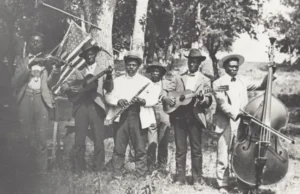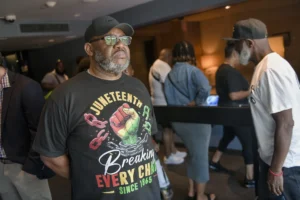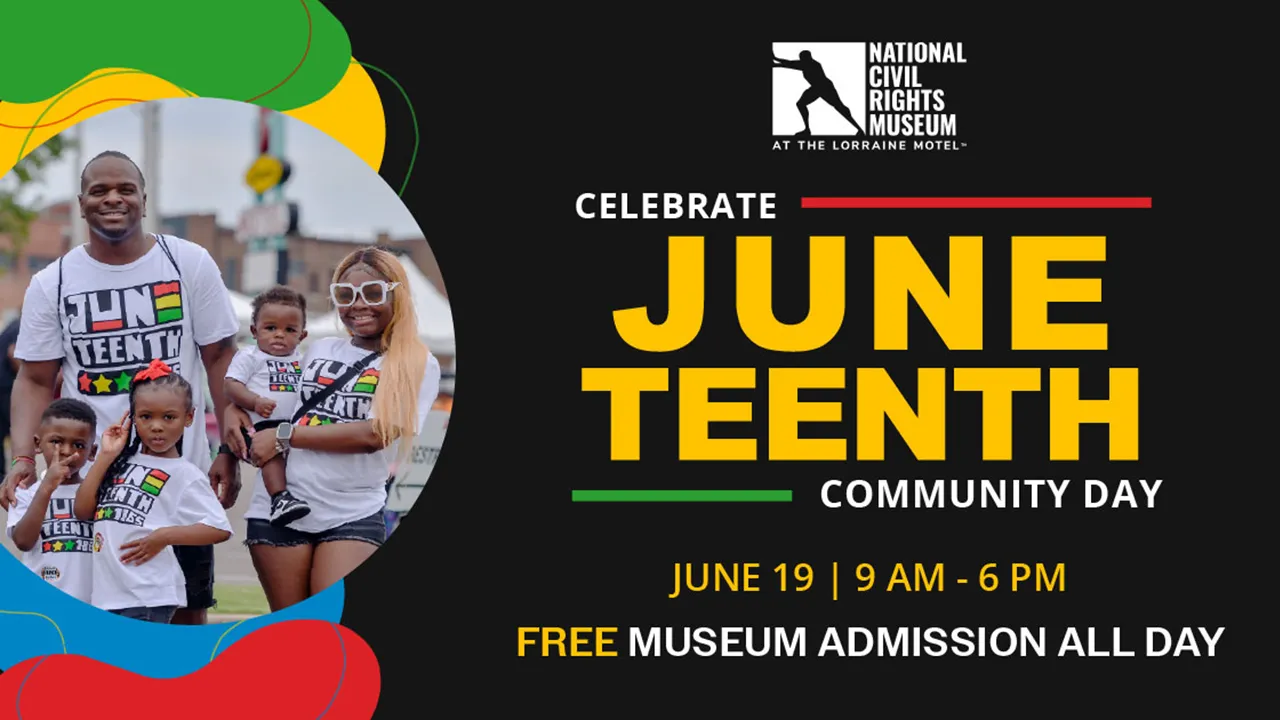National Civil Rights Museum Op-Ed
Dr. Russ Wigginton, President
 Juneteenth—June 19, 1865—is more than a date on the calendar. It marks the moment when the last enslaved Black Americans in Galveston, Texas were told they were free, more than two years after the Emancipation Proclamation had legally set them free. That delay wasn’t just a logistical oversight—it was symbolic of a larger truth: that freedom in America has always been unevenly distributed, often delayed, and frequently denied.
Juneteenth—June 19, 1865—is more than a date on the calendar. It marks the moment when the last enslaved Black Americans in Galveston, Texas were told they were free, more than two years after the Emancipation Proclamation had legally set them free. That delay wasn’t just a logistical oversight—it was symbolic of a larger truth: that freedom in America has always been unevenly distributed, often delayed, and frequently denied.
Yet Juneteenth also represents the idea that emancipation was not an end, but a beginning—a launchpad for a broader and more inclusive vision of American freedom. When Black Americans were emancipated, it was a radical shift not just for them, but for the entire American society. It forced this country to confront the gap between its founding ideals and its lived reality. Freedom, if it was to mean anything, had to apply to everyone.
Fast forward to today: we are living in a time when basic civil and human rights are once again under threat. We see rollbacks on voting rights, attacks on bodily autonomy, a dismantling of affirmative action, restrictions on LGBTQIA+ expression, and a rise in censorship. Book bans. Curriculum whitewashing. Suppression of protest. These aren’t isolated incidents—they are symptoms of a coordinated backlash against what it means to be inclusive.
The irony is hard to miss: the same Constitution that once sanctioned slavery now stands as a battleground for the very freedoms it should protect. First Amendment rights are being selectively applied. Greed has marginalized worker and expanded wage gaps. Peace is rebranded as complacency. And behind it all, we see the rise of authoritarian rhetoric cloaked in patriotism—a creeping societal acceptance that equates dissent with disloyalty.
 The truth that is not always amplified is that the power has always rested with the people. It was true when abolitionists and freedpeople pushed America to fulfill its promise, and it’s true now. True change starts in neighborhoods, town halls, school boards, and state legislatures.
The truth that is not always amplified is that the power has always rested with the people. It was true when abolitionists and freedpeople pushed America to fulfill its promise, and it’s true now. True change starts in neighborhoods, town halls, school boards, and state legislatures.
To reclaim and reimagine American freedom, we need coordinated, ground-up action. Here’s how:
- Organize Locally – Start with city councils, school boards, and local elections. These are the arenas where policy hits hardest and where engagement is lowest. Mobilizing here builds power from the base.
- Leverage Technology – Use platforms not just to post, but to plan. Share knowledge. Crowdsource solutions. Build digital coalitions across state lines. Grassroots organizing is now a digital game—play it wisely.
- Hold Elected Officials Accountable – They swore an oath to the Constitution, not a party or ideology. Flood their offices with calls, emails, and town hall questions. Don’t let silence pass as consent.
- Educate Relentlessly – History is being rewritten. Combat that by teaching real history—Juneteenth included—not just in classrooms, but at dinner tables, in churches, in community centers.
- Protect the Vote – Voter suppression is real. Fight for fair maps, restore rights to disenfranchised voters, and push for automatic registration and mail-in options. Democracy dies behind closed doors.
- Build Cross-Movement Solidarity – Whether it’s racial justice, freedom of speech, labor rights, or climate justice—these issues are intertwined. Our liberation is collective, not siloed.
Juneteenth should remind us that freedom has never been free. It has always been fought for—inch by inch, generation by generation. The chaos in our current political climate isn’t just noise; it’s the sound of a system afraid of losing control. But that’s not a reason to retreat. It’s a call to step forward, to highlight community over chaos.
True American freedom isn’t a finished product. It’s a living promise—one we must constantly work to fulfill.
The path forward doesn’t begin in Washington, D.C. It begins on your block, down your road. Let’s get to work.
